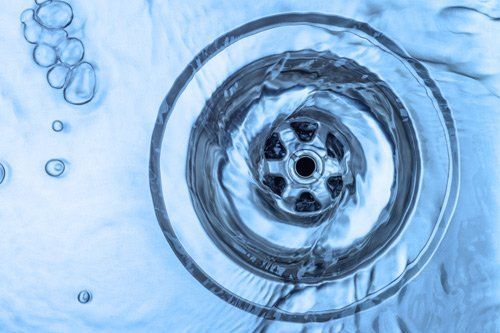
While many homeowners are connected to the city sewer line to eliminate waste from the home, many others have septic tanks. Septic tanks store and process the waste, but they still need regular maintenance to keep them in good condition. If you are new to owning a septic tank, check out these four tips to help you protect your tank and system.
1. Be Mindful of What You Flush and Drain
Regardless of what your sewage system uses (tank or city sewer), you shouldn't flush just anything you want down the toilet. However, this is perhaps even more important if you have a septic tank because a lot of chemicals and items that do fine with a city sewer aren't good for septic systems.
In particular, you should avoid flushing (or pouring) anything hazardous like drain cleaners, floor cleaners, paint solvents, and motor oils. These fluids may actually kill the bacteria that helps breakdown the waste.
You also shouldn't use anything that says it isn't safe for septic tanks. And you should avoid using a garbage disposal for putting certain foods down the drain like coffee grounds or egg shells.
2. Don't Install or Plant Anything Near the Tank
Your septic tank sits under the ground, so you can't see it, but you still need to know exactly where it is because you shouldn't build anything near it or on it. This extra weight can cause damage or stress on the system. You also want to avoid heavy equipment, vehicles, or even livestock. This weight can compact the soil or damage the system.
In addition, do not plant anything too near the tank. Grass is a great covering for the tank because the roots are short. However, if you plant too many tress or larger plants, the roots may be attracted to your tank, and they can actually grow into it or the pipes.
3. Conserve Water Consumption
Many people want to conserve water because it's a great way to keep your water bill down. However, if you have a septic tank, conserving water benefits the systems. The tank can only hold a certain amount of water and waste. This is because the system works by separating solid and liquid. The liquid is then released into the drain field.
If you use too much water all the time, however, the tank can get too full, and it can't separate the water from the solid fast enough. This can cause the tank to overflow or it can put unnecessary wear and tear on the tank, which may mean it needs more frequent repairs or replacement.
4. Record When and How Often You Clean the Tank
There is no set timeframe on how often you should clean the tank. It varies from household to household and depends on how many people live in the home, how much water you use, how big is your tank, etc. At first, you may have to guess when the tank needs to be emptied, but as you continue to use the tank, a pattern will begin to form.
In most cases, the tank will need to be cleaned every three to five years, but that's a big difference. Therefore, you should always record how often and when you clean the tank. This will give you the information you need to determine when the tank will be full, so you don't waste money emptying a half-full tank or let your tank overflow.
As long as you keep it in good condition, your septic tank shouldn't give you many problems. These four tips (along with regular maintenance and emptying) will ensure your tank lasts as long as possible. For more information about septic tank care, contact us at Upstate Septic Tank, LLC, today.






